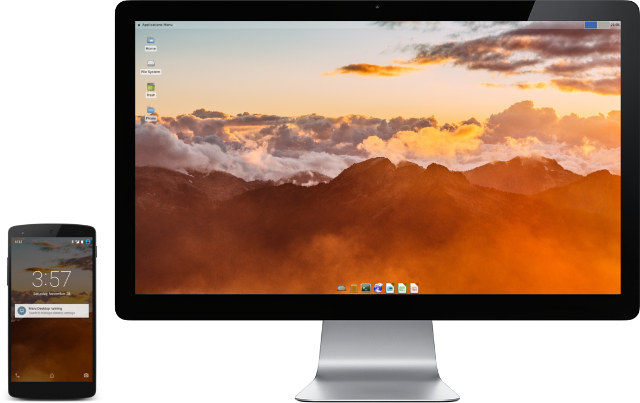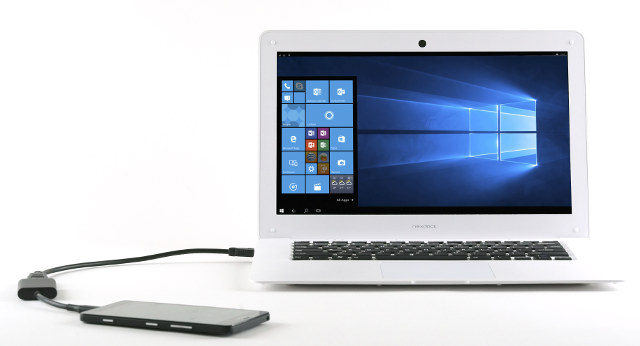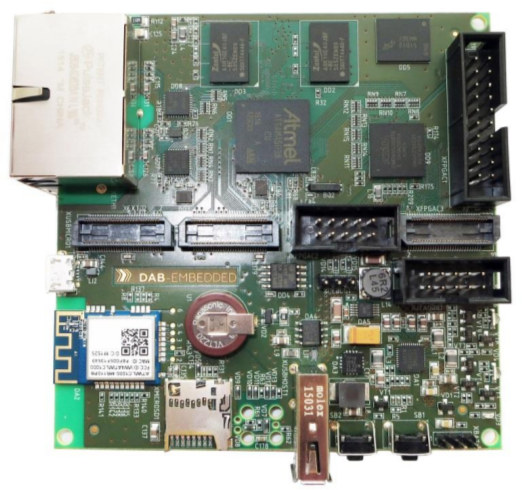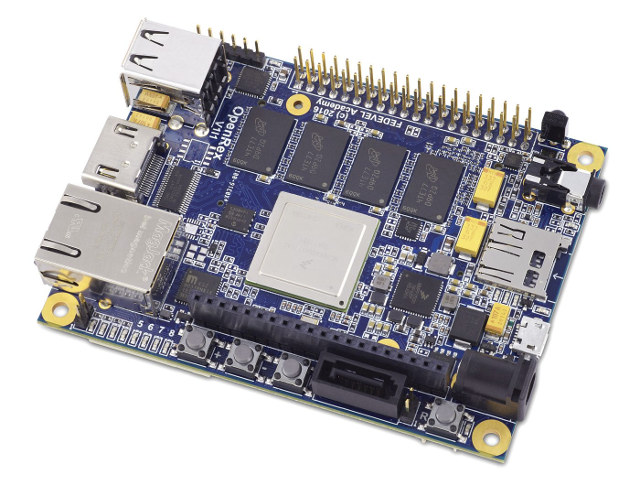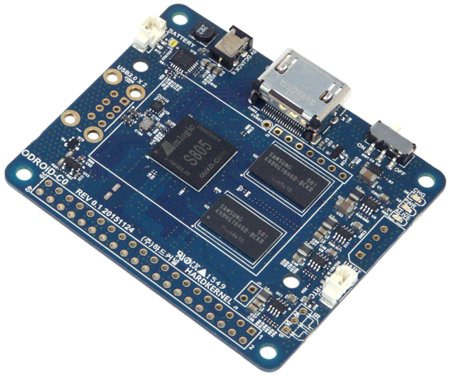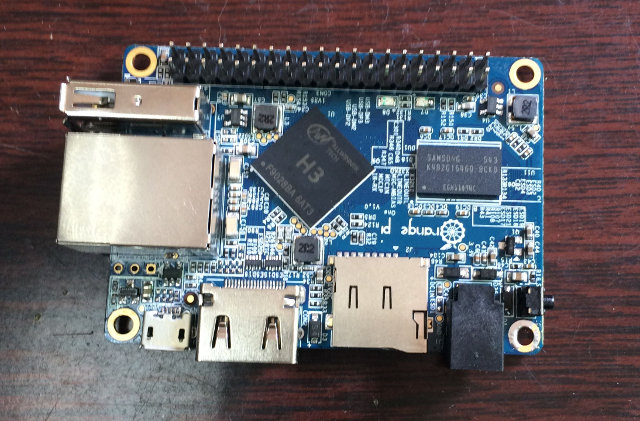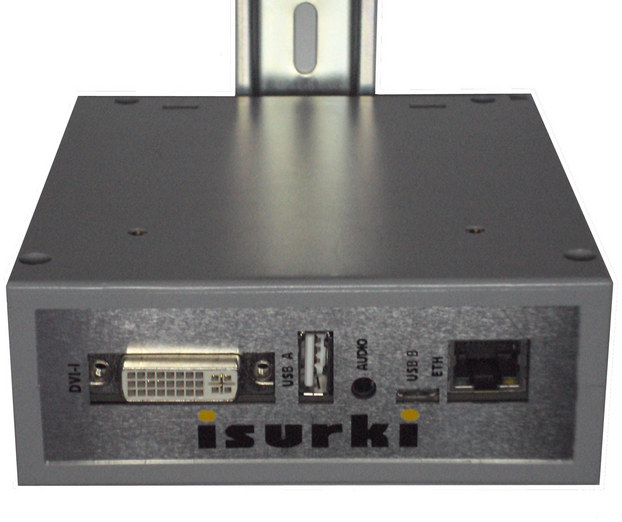There have been several news related to open source operating systems in the last couple of weeks including Maru OS to run Debian on Android, Zephyr Project real-time OS managed by the Linux Foundation, ReactOS an open source port of Windows XP, and Raspberry Pi boards are getting a Tizen 3.0 port, as well as a new Raspbian release. Maru OS – Mobile <-> Desktop Convergence Maru OS mobile operating system is supposed to do what Ubuntu convergence promised: it runs in mobile mode on the go with Android Lollipop mobile OS, once you connect the phone to an HDMI screen, and pair Bluetooth keyboard and/or mouse, it will switch to desktop mode running Debian Linux. The downside is that so far it a single developer (Preetam D’Souza) worked on it, and the beta version only works on Nexus 5 smartphone. However, since the project went viral, dozen of other […]
NexDock is a 14″ Lapdock Alternative for mini PCs, Development Boards, Smartphones and Tablets (Crowdfunding)
Motorola once launched the Lapdock, a device that looks like a laptop with a 11.6″ screen and a keyboard, but without processor or memory since it was instead designed to connect to the company’s Atrix 4G smartphone. Motorola eventually pulled the plug on this concept, and maybe it was just ahead of its time, as a startup has now developed NexDock, a device similar to Lapdock with a 14″ display, built-in battery and Bluetooth keyboard. NexDock technical specifications: Display – 14.1″ TN screen; 1366×768 resolution; 16:9 display ratio Bluetooth 4.0 keyboard and touchpad Video input – mini HDMI port Audio Output – 3.5mm headphone port Storage – micro SD card slot USB – 2x USB ports Battery – 3.8V / 10000mAh Li-ion battery Power – 5V/2.5A via 3.5mm power barrel Dimensions – 351 mm x 233 mm x 20 mm Weight – 1490 grams NexDock is operating system agnostic and would […]
DAB Embedded OpenWrt Router Board Combines Atmel SAMA5D3 SoC and Altera MAX 10 FPGA
DAB Embedded, a Belgian engineering company specialized in research and development of electronic products, has designed DAB-OWT-SAM5 router board powered by Atmel SAMA5D36 Cortex-A5 processor and Altera MAX 10 FPGA, which runs OpenWrt or Windows Embedded Compact 7, and targets IoT applications. DAB-OWT-SAM5 board specifications: SoC – Atmel SAMA5D36 ARM Cortex-A5 processor @ 536MHz with Floating-Point Unit. FPGA – Altera MAX 10 FPGA with integrated ADC (Exact part number not disclosed) System Memory – Up to 512MB DDR2 Storage – Up to 2GB NAND flash, 1Mbit SPI flash, micro SD slot Connectivity – 2x Fast Ethernet ports, 802.11 b/g/n WiFi (Direct, station mode, and soft-AP) via Atmel ATWILC1000B module Display Interface – LVDS connected to FPGA USB – 1x USB 2.0 host, 1x USB 2.0 device Expansion Connectors Wired interfaces – RS232, CAN 2.0 A/B, KNX, RS-485/422, etc… Wireless connectivity – Zigbee, Z-Wave, KNX RF, etc… Power Supply – 5V DC […]
OpenRex NXP I.MX6 Open Source Hardware Board Design Files Released
OpenRex is an open source hardware board powered by NXP i.MX6 designed by Fedevel, and the company has announced the release of Altium project design files including both schematics and PCB layout source files, as well as manufacturing documentation. OpenRex board specifications: SoC – NXP i.MX6 processor @ up to 4 cores @ 1.2GHz with 2D and 3D GPU MCU – NXP LPC1345FHN33 ARM Cortex-M3 micro-controller System Memory – DDR3-1066 (533MHz) up to 4GB Storage – SATA, micro SD slot, 1x I2C EEPROM, 1x SPI FLASH Video Output / Display I/F – 1x HDMI up to 2048×1536 resolution, LVDS, parallel RGB display output, touchscreen connector (Optional 4x Analog input) Audio – HDMI output, 3.5mm stereo headphone jack, Camera – 1x Parallel CSI camera (shared with RGB output), 1x MIPI CSI connector compatible with Raspberry Pi (shared with LVDS) Connectivity – 1x 10/100/1000 Mbps Ethernet USB – 2x USB 2.0 host […]
Linaro Connect 2016 Bangkok Schedule – March 7-11, 2016
Linaro Connect Bangkok (BKK16) will take place on March 7 – 11, 2016, and the schedule is now available for the 5-day event with keynotes and sessions. Whether you’re going to attend or not, it’s always interesting to check the schedule to find out what’s going on in terms of ARM Linux development. The five days will focus on work by different Linaro groups, but really sessions are mixed for any given day, and I’ve created a virtual schedule for each day with available information, as Linaro has become a little more closed to the outside than when it was launched a few years ago. Monday 7 – LITE (Linaro IoT & Embedded Group) 1400 – 14:50 – Evolution of the Reference Software Platform Project The Reference Software Platform lead project was introduced in Linaro Connect San Francisco 2015, and since then it evolved and matured with the completion of […]
$25 ODROID-C0 Development Board Targets IoT, Wearables, Robots and Drones
Hardkernel started to mention ODROID-C0 board last November, a cost-down and smaller version of ODROID-C1+ board powered by Amlogic S805 quad core Cortex A5 processor with 1GB RAM, dropping Ethernet, and a few USB port, but gaining a Li-po battery management unit. The company has now officially launched the board, which can be purchased for $25 on Hardkernel website or via distributors such as Ameridroid. ODROID-C0 specifications: SoC- Amlogic S805 quad core ARM Cortex-A5 @ 1.5GHz with ARM Mali-450MP GPU System Memory – 1GB DDR3 @ 792Mhz Storage – eMMC Module Socket, micro SD card slot up to 128GB Video Output – HDMI Audio Output – HDMI, I2S USB – 2x unpopulated USB2.0 ports Expansion Headers Unpopulated 40-pin header with GPIO, UART, SPI, I2C, and ADC signals Unpopulated 7-pin header for I2S Debugging – Unpopulated serial debug header Misc – On-board RTC function with battery connector, unpopulated IR receiver Power […]
Received Your Orange Pi One Board? You’ll Need to Tweak Your FEX File / script.bin
[Update: I’ve been informed that for some unknown reasons the voltage regulator outputs 1.3 and 1.5V instead of 1.1 and 1.3V on Orange Pi One with the settings and FEX file below, which could lead to overheating, and possibly damage the board under heavy load. A workaround is available here] [Update2: And the temperatures reported by the kernel are wrong (too low), so it’s better not to use the higher voltage at all. More details and tests @ http://forum.armbian.com/index.php/topic/617-wip-support-for-the-upcoming-orange-pi-one/page-4#entry5261] Orange Pi One is arguably the cheapest ARM Linux development board with networking available today for $9.99 plus shipping. It is very similar to Orange Pi PC with an Allwinner H3 quad core Cortex A7 processor, Ethernet, and HDMI, but has less memory as it comes with 512MB RAM instead of 1GB, and comes with a few less features too. The bad news is that Shenzhen Xunlong did not release any […]
Isurki IRIS Industrial Embedded Computer Takes Nvidia or NXP System-on-Modules
Isurki is a Spanish company providing electronics & IT services to hydraulic resources management companies, and one of their products is IRIS industrial embedded computer based on Toradex Iris carrier board that supports Toradex Colibri ARM system-on-modules based on either Nvidia Tegra 2/3 or NXP Vybrid VF50/VF61 processors. Main board connectors and features: Video – DVI-I LCD Interface – RGB / LVDS with 4/5 resistive touch interface Audio – Line-In, line-Out, Mic-In Storage – Micro SD Connectivity – 10/100M Ethernet USB – 1x USB host, 1x USB OTG Expansion – 24 GPIOs, 3x UART ports Misc – 1x IrDA, RTC Power Supply – 6 to 27V DC, reverse polarity and short circuit protected Then you can choose among several variations of ARM based Colibri system-on-modules: Colibri T20 Nvidia Tegra 2 dual core Cortex A9 processor with 256 to 512MB DDR3, and 512MB to 1GB flash Dual independent displays 2D/3D hardware […]


